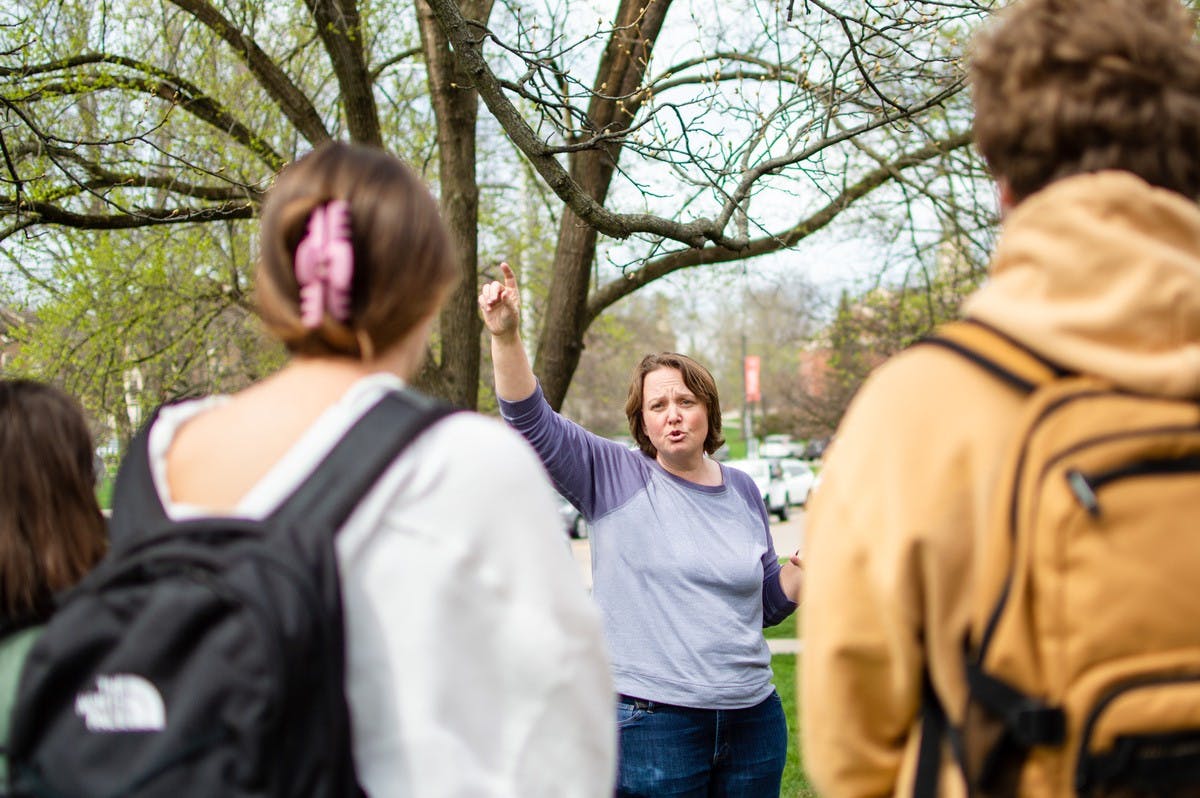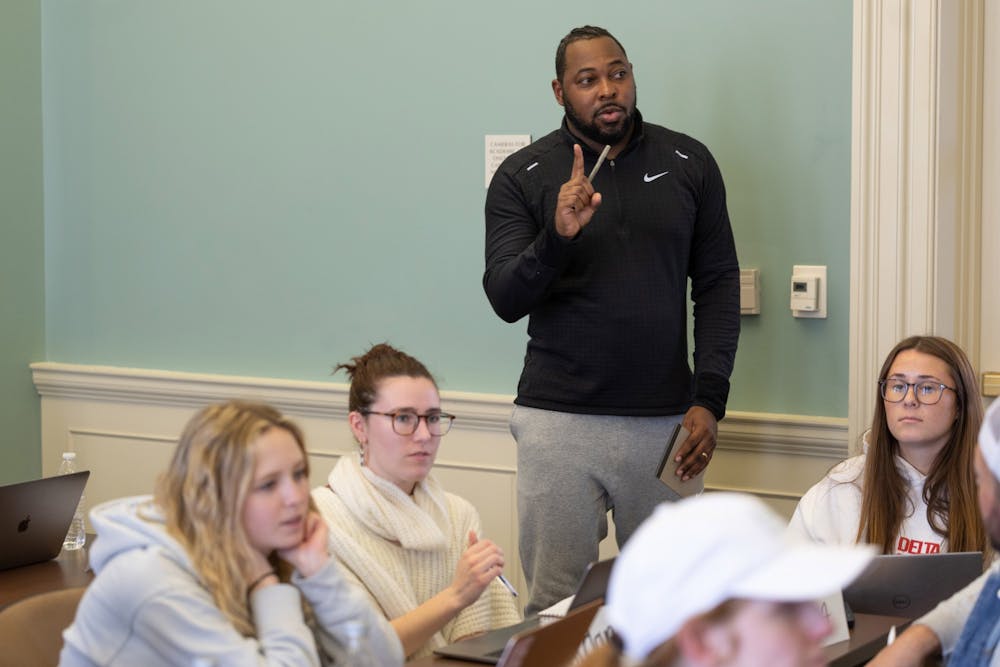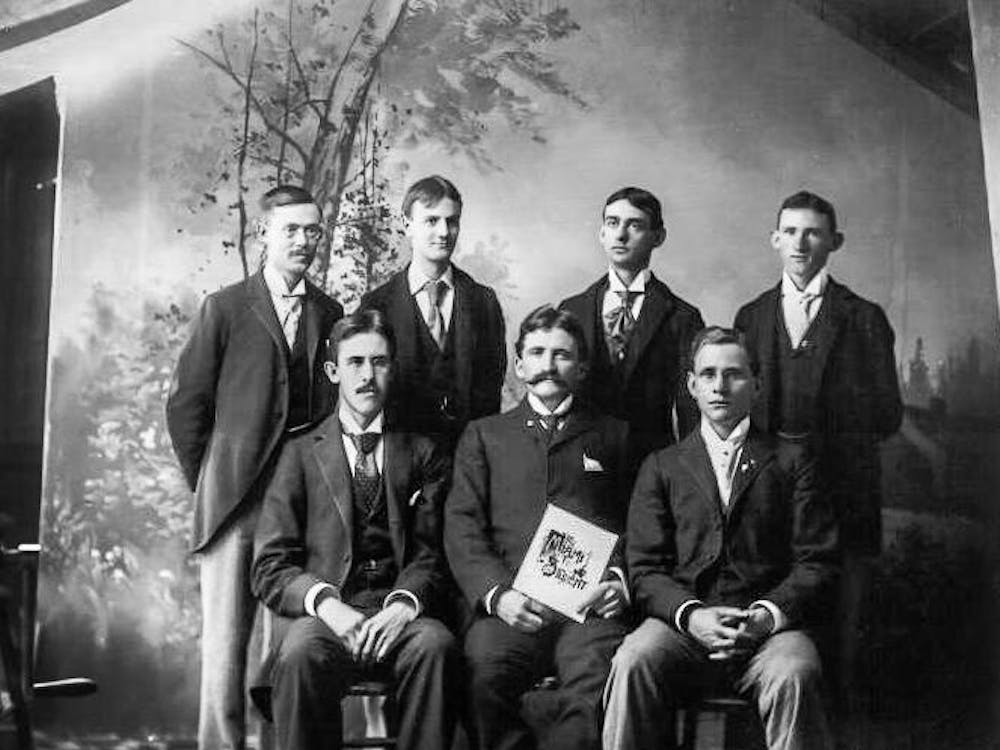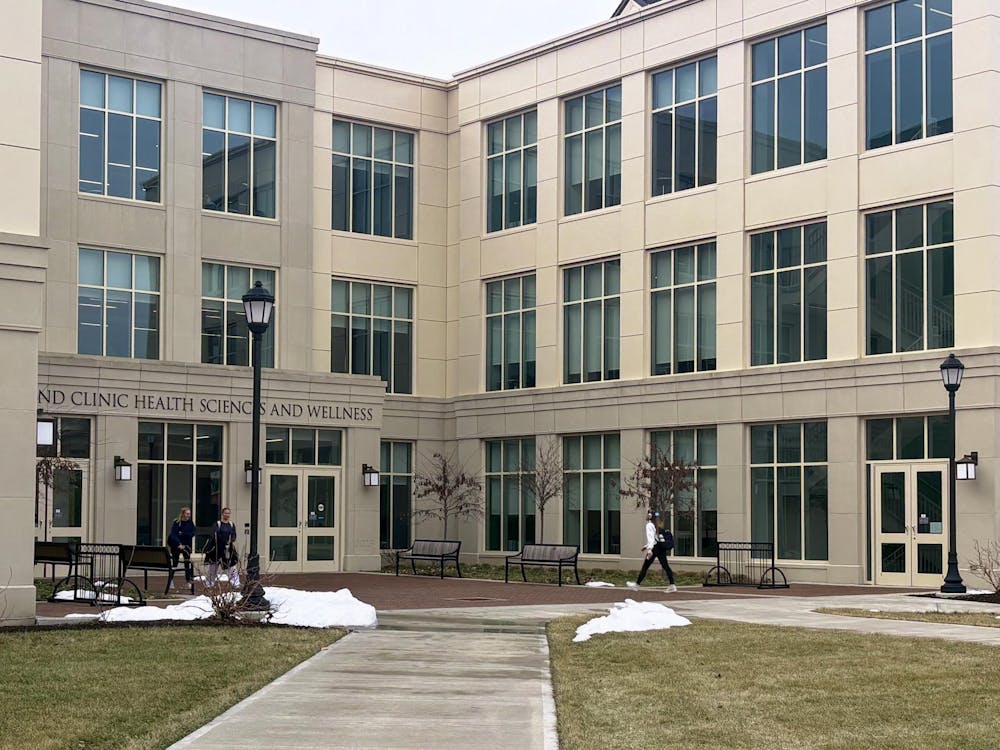Marly Wooster’s tenure path started on her first day at Miami University six years ago. As the only faculty lighting designer in the theater department, her journey was difficult to navigate because she’s the only one doing this type of work to receive tenure.
“A big part of what I’m doing in that process is trying to explain to other people what my work is and why it’s valuable,” Wooster, an assistant professor in the department of theater, said.
In March, 38 faculty members at Miami, including Wooster, were granted tenure. This high achievement is a long and time consuming process for both the faculty and the university’s administration.
What is tenure?
Liz Mullenix, provost and executive vice president for Academic Affairs, said tenure protects intellectual and academic freedom. It allows faculty to pursue their entire landscape of knowledge and not be worried about getting fired if they’re studying something that administration might disagree with.
“It’s a differentiated workload because academic life is long, things happen,” Mullenix said. “Sometimes people will pivot and really change the nature of their research. That's another thing that tenure protects, which is lovely.”
Tenured faculty are expected to be research-productive, meaning they need to have a regional or national reputation as a scholar and a terminal degree, like a doctorate. Miami is different from other universities because it gives a pre-tenure sabbatical to faculty, which is a one-month leave to do research.
There are misconceptions, though. Tenure doesn’t always safeguard someone from being fired. If there is reasonable cause to be terminated, they will be.
How do faculty members get tenured?
According to the University Policy Library, to be eligible for tenure you need to serve as a full-time member of faculty, be engaged at least 50% of the time with teaching assignments and research and have an appointment with tenure eligible rank.
Professors who are hired as tenure-eligible are given a six-year probationary period after which they can be tenured and promoted to associate professor.
Wooster said her colleague gave her the perfect analogy to describe tenure: marriage.
Enjoy what you're reading?
Signup for our newsletter
“I knew there was nothing unsteady about the relationship prior,” Wooster said. “I knew where I stood. That was clear. But there's something about making it official that, for me, has created an ease.”

Marly Wooster is the only faculty lighting designer in the theater department.
It’s not all cut and dry, though. Faculty can apply for tenure before the end of their probationary period with permission from their department, chair, dean and provost. The probationary period can also be shortened or lengthened.
Tenure faculty are assessed annually on their teaching, research, collegiality and their service.
“I have dreams about things I want to do in this next phase of research, that are largely about collaboration and the teaching of collaboration and how we as theater artists think about it and write about it and teach it,” Wooster said.
Service includes committee and administrative work at the department, college or university level. There’s also professional service, which a professor does for their field outside Miami.
“My favorite kind of service event so far has been working with the department of management and DEI,” Darryl Rice, assistant professor of management and one of the professors who received tenure this year, said. “Last semester, one of the recommendations that I proposed … [was to] build a greater sense of community and belongingness within the department of management [through] our inaugural field day.”
All of their professional activity and accomplishments must come together in a max 20 page “dossier.” According to Academic Affairs tenure track guidelines, “the candidate’s dossier should present in narrative and summary fashion the information he or she wants those making promotion and/or tenure decisions to know about the record of performance.”
It’s then evaluated by their committee and dean, and in their third through fifth years, it will be evaluated by the provost. The candidate will receive letters every year from their committee, and the provost updates them about the progress they’re making toward tenure.
The summer before their sixth year, faculty members seeking tenure send out their research materials to be externally evaluated. The materials vary but typically include the Curricular Vitae and their scholarly writings.
Mullenix said research has to be high quality and then continue to be high quality at the annual assessments to ensure that the investment the university puts in someone's career will continue with their research.
For TCPL promotion, the faculty member will then submit a packet that includes their dossier, four external letters, the letter from their promotion and tenure committee, decision and letter from their department chair and the dean's decision.
Those three votes are what a faculty member needs to be considered by the university promotion and tenure committee, made up of six academic deans, the provost and six tenured faculty, one from each academic division. If any of those votes are a “yes,” then it will go to the university promotion and tenure committee for discussion.
Tenure is then granted by the Board of Trustees upon the positive recommendation of the university’s President.
“The university really is investing in someone for their career, and that's a very significant investment in an employee, which is another lovely thing about academia,” Mullenix said.
What changes after getting tenure?
After faculty receive tenure, some of the only changes are their workload, having more senior level administrative duties and service related responsibilities.
“[My workload is] a good mixture of broccoli and dessert,” Wooster said. “There’s some stuff that’s hard and maybe not my favorite, but it’s incredibly important.”
Once a faculty member receives tenure, they move from being an assistant professor to an associate professor, and then they can go up to be a full professor.
“[I felt] extremely happy to have earned tenure here at Miami. I've really enjoyed my time here since I arrived in 2015,” Rice said. “And it was just like a sigh of relief because as a junior faculty you’re this assistant … you want to show you can hit whatever measures those who have come before you hit, so it's just a sense of relief.”
Another misconception about tenure is that once a professor receives it, they don’t have to work as hard anymore. In fact, professors get evaluated annually to ensure they are reaching tenure expectations in their teaching, research and service.
Abby Sokol, a junior psychology and theater double major, had Wooster as a professor before she received tenure and is currently in three of her classes. Sokol has noticed no change in her teaching style and doubts there will be.
“She does a really great job of teaching to a variety of different audiences while also being in the same class, ... She makes all the places that she's in inclusive,” Sokol said.
Keshon Woods, a junior entrepreneurship and human capital and leadership double major, had Rice as a professor last semester and also said he has not seen a change in his teaching.
“I don't think that tenure affects anything in a negative way or puts more on him where he can't be there because he'll hit me up and I'm not even in his class [anymore],” Woods said. “He's that kind of dedicated person he's going to make sure [to] keep up with [his] students.”




